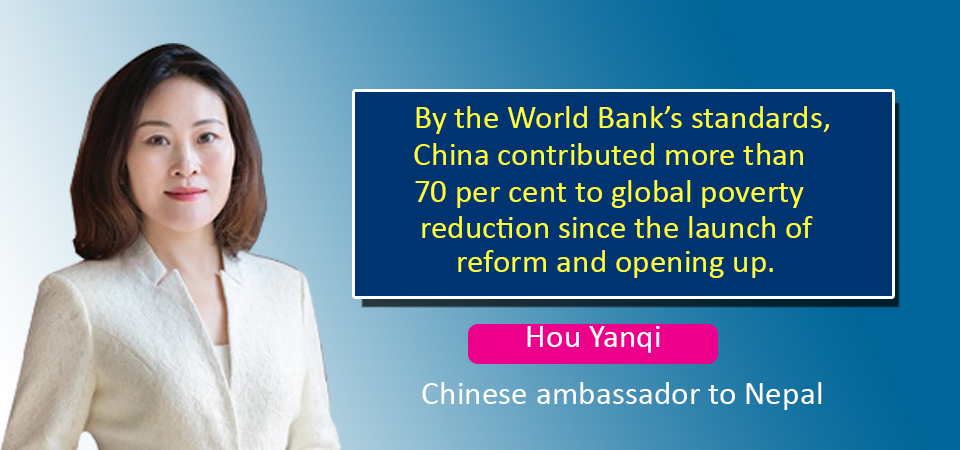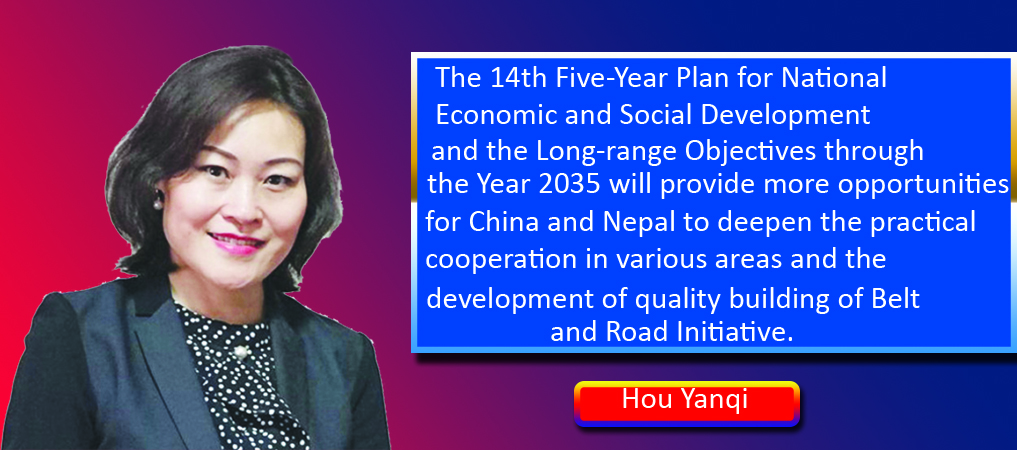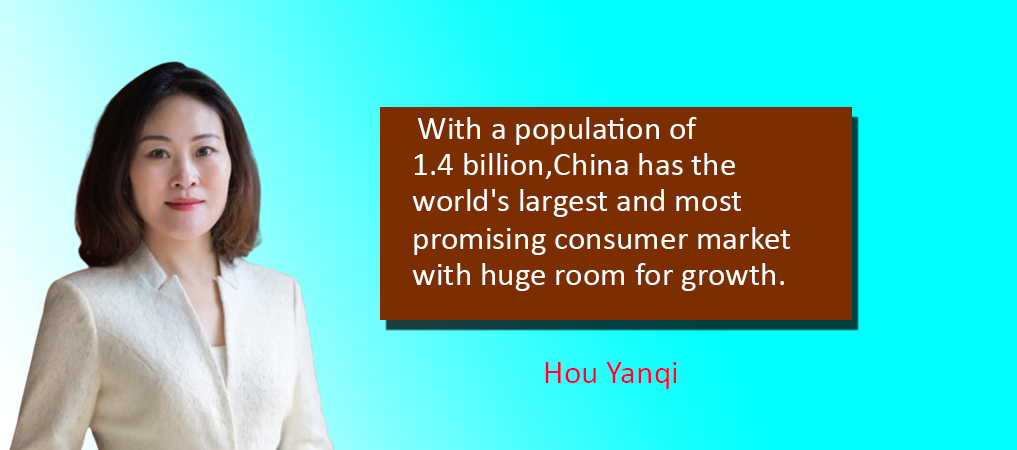China Eradicates Absolute Poverty

Hou Yanqi
Poverty is a persistent challenge that troubles many countries. Zero poverty is a long-held dream of humankind. As the largest developing country, China always holds that the right to subsistence and the right to development are primary basic human rights and remains true to its original aspiration and mission of improving living standards, seeking happy life for the Chinese people. In the past eight years, China has placed poverty eradication in a prominent position of governance, launched a people’s war against poverty and achieved historic results.
Not long ago, while addressing a grand gathering to mark the country’s accomplishments in poverty eradication, President Xi Jinping announced that on the occasion of the 100th anniversary of the founding of the Communist Party of China (CPC) this year, China has achieved a complete victory over absolute poverty. Around 98.99 million impoverished rural residents living under the current poverty line have all been lifted out of poverty. All the 832 impoverished counties and 128,000 impoverished villages have been removed from the poverty list.
Arduous task
China has completed the arduous task of eradicating absolute poverty, which is truly a miracle of human society. Besides, I’m glad to inform that in Tibet Autonomous Region, 74 impoverished counties and 628,000 impoverished residents were all lifted out of poverty in 2019, and poverty was eliminated in Xinjiang Uyghur Autonomous Region with a cumulative population of 3,089,000 reaching the line by the end of 2020.
While delighted by accomplishments in poverty eradication, I have some feelings to share here. First, the advantages of the socialist system and institution have played a decisive role. President Xi Jinping personally commanded and supervised poverty relief efforts and gave consistent important guidance on poverty alleviation. The heads of Party committees and governments of relevant provinces and autonomous regions signed to the Central Authorities letters of commitment on poverty elimination, and likewise similar documents were signed by leaders at lower levels. And the whole nation waged a united battle against the poverty.
We strengthened the collaboration between the eastern and western regions, promoted flow of talent, funds and technology to poverty-stricken areas. China has invested accumulative fiscal funds of nearly 1.6 trillion Yuan into poverty alleviation over the past eight years. A total of 255,000 working teams were dispatched to offer on-the-ground support and over 3 million people were sent to the countryside as special commissioners for poverty relief. Among them, there are about 40 colleagues of mine in the Ministry of Foreign Affairs.
Second, a targeted poverty alleviation strategy has given great impetus to the anti-poverty campaign. We have striven to eradicate poverty through development and emphasised on addressing both the symptoms and root causes. We creatively developed diversified methods of poverty relief work, including through relocation programmes and industrial development, realised the transformation from “blood transfusion” to “hematopoiesis”. Since 2015, all 832 impoverished counties have carried out more than one million industrial projects, with each county having 2-3 featured and leading industries. With the support of the government’s policies, 9.6 million registered impoverished people have been relocated and changed their destiny with working hands.
Third, multifaceted and comprehensive policies have provided important guarantee. In the past eight years, we have conducted the strictest assessment to ensure the quality and standards of the poverty relief work and made great efforts to tackle corruption and misconduct in work related to poverty alleviation. Guided by the conviction that lucid waters and lush mountains are invaluable assets, we have integrated green development into poverty reduction actions and achieve both economic and environmental benefits.
For instance, over 1.1 million impoverished rural residents have worked as forest rangers, which ensured the management and protection of the environment. The governments have implemented auxiliary policies including on education, health and elderly care in order to avoid returning into poverty and realise the sustainable development of people’s livelihood improvement.
Fourth, China’s achievement has made an important contribution to the global poverty reduction efforts. By the World Bank’s standard, China contributed more than 70 per cent to global poverty reduction since the launch of reform and opening up. Guided by the vision of building a community with a shared future for mankind, China has been actively committed to international cooperation on poverty alleviation. According to a research report of the World Bank, the China-proposed Belt and Road Initiative could help lift 7.6 million people in participating countries out of extreme poverty and 32 million people out of moderate poverty.
Trustworthy friend
I am glad to learn that the United Nations Committee for Development Policy has recommended for Nepal's graduation from the Least Developed Country category with preparatory period of five years and Nepal will become a developing country on the year 2026. Given that the global economy has been severely hit by the COVID-19 pandemic, it is a hard-earned achievement made together by the Nepali government and people.
I would like to extend my sincere congratulation to Nepal government and people on this achievement, and wish that the people all walks of life would commit to maintaining political stability, focusing on economic and social development, continuously improving people’s livelihood, so as to realise the vision of Prosperous Nepal, Happy Nepali and achieve the goal of becoming a middle income country by 2030. China will always be Nepal’s trustworthy and reliable partner in this process.
(The author is the Chinese ambassador to Nepal)
Recent News

Do not make expressions casting dout on election: EC
14 Apr, 2022
CM Bhatta says may New Year 2079 BS inspire positive thinking
14 Apr, 2022
Three new cases, 44 recoveries in 24 hours
14 Apr, 2022
689 climbers of 84 teams so far acquire permits for climbing various peaks this spring season
14 Apr, 2022
How the rising cost of living crisis is impacting Nepal
14 Apr, 2022
US military confirms an interstellar meteor collided with Earth
14 Apr, 2022
Valneva Covid vaccine approved for use in UK
14 Apr, 2022
Chair Prachanda highlights need of unity among Maoist, Communist forces
14 Apr, 2022
Ranbir Kapoor and Alia Bhatt: Bollywood toasts star couple on wedding
14 Apr, 2022
President Bhandari confers decorations (Photo Feature)
14 Apr, 2022




